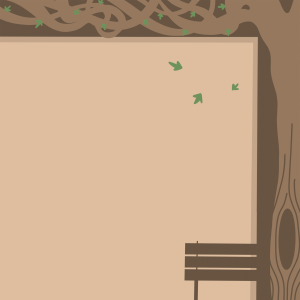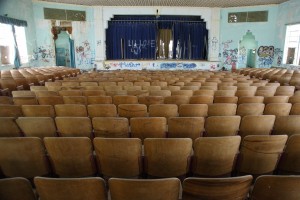
Extreme Education: Inside the South Korean School System
by Alex Walker | June 7, 2015
Late at night, Seoul’s backstreets are the domain of more than just the homeless and the drunk. In most cities these particular nightwalkers would be an unfamiliar sight. From 10pm until the early morning children and teenagers can be spotted shuffling home, still in their school uniforms laden with the tools of study – chunky backpacks full of books.
In South Korea it is compulsory to go to school from 8:00 am to 4:30 pm, 220 days a year. However, this statistic only represents part of the school routine through which the majority of children go daily. While studying for thirteen hours a day is commonplace, fifteen to sixteen hours is far from unheard of. In Seoul students see little of the vibrant metropolis they call home, cooped up in classrooms from dawn to dusk. The sights of Seoul – its vast mock palaces and leafy parks – are frequented more often by retirees than by school children. The dominance of the ‘hagwon’ in Korean society is behind these long working days for the country’s youth. These are the private educational facilities attended by most Korean students, where parents pay for a range of classes intended to supplement their child’s education. They enter after school in smoggy sunlight and emerge under the gaze of neon and streetlights.
The Korean system revolves around a single major examination taken at the end of high school: the College Scholastic Aptitude Test, or, more popularly, the ‘suneung’. The outcome of this exam determines not only the participant’s university place but also, through this, their job, and, in a society highly concerned with social hierarchy, their marriage prospects. It is partly for these reasons that Korea spends the highest percentage of GDP on private education in the world. Their entire system of learning itself is incredibly focused on tests and test scores. Korea’s schoolchildren excel predominantly in maths and sciences – subjects that can be improved through rigorous training. In 2013, South Korea came 5th in an Organisation for Economic Co-Operation and Development (OECD) table charting numeracy rates among 16-24 year olds. From kindergarten onwards an unbroken academic routine is embarked upon that produces fiercely and consistently high results.
This system of education was originally a product of necessity. The country that emerged from the Korean War was devastated. The towering apartment blocks and glass monoliths that characterise Seoul’s skyline today were notably absent from the shack-dotted streets of a country in which a third of the population was homeless. The country had no infrastructure, no raw materials or natural resources; it had only its people, and the government encouraged them to take it upon themselves to pull their country out of poverty. In line with Confucian thinking, this involved a heavy emphasis on a useful education. This first wave of hard working, newly educated Koreans inculcated a similar attitude in their children, and their work ethic was preserved.
In recent years Western countries such as the USA and Britain have been slipping steadily down the rankings of these regular OECD reports on education. In the same OECD study that placed South Korea 5th for numeracy, Britain came 21st out of 24 countries. The US has the worst numeracy levels of any country surveyed. Their politicians have been glancing nervously to the East. Uncertain about the future of their once sacred programmes for educational success, they have begun praising in earnest the thoroughness of systems like that in place in South Korea. The simple solution of these politicians is to emulate those that have done well, so they too can do well again. The long hours and terms of the South Korean system are lauded as the key to improvement. Both Obama and Michael Gove have been quoted employing the simple logic that the more we do of something, the better we get. Gove has claimed that if England is to thrive educationally, “a higher level of effort is expected on behalf of students, parents and teachers. School days are longer, school holidays are shorter.” Obama too emphasises the role of parents in education, praising the concern of mothers in South Korea for their children’s success, as well as pointing out that children in America “spend over a month less in school than children in South Korea every year,” which is “no way to prepare them for a 21st century economy.”
There are obvious flaws in a system that emphasises long working hours in private institutions purely for the sake of attaining high test scores. 96 percent of South Korean students are sleep-deprived, with an average of just 6 and a half hours a night. This gruelling work ethic is not limited to the educational world. In the working environment the potentially detrimental effects are apparent in the data. Whilst Korea’s economy may be thriving through the hard work of its citizens, their actual productivity is remarkably low, coming 28th out of 30 OECD countries in terms of hourly productivity. Talking to two Western teachers in Korea, the issues present themselves starkly, and their job begins to sound increasingly bleak. One of the teachers is quick to lament “the commodification of education,” but linked this fact to the extreme involvement of Korean parents in the progress of their children. As soon as she processes the grades on her reports the phone in her office begins to ring, calls from adamant parents requesting interviews to discuss their child’s progress, or more often, lack of acceptably high progress. In one of these interviews a parent asked her directly why she couldn’t just give her daughter the mark she needs for university. The other teacher spoke of the poor behaviour of the children in her class, despite the academic discipline enforced by parents. Bullying is rife; parents encourage long hours in the library but fail to instil more general good behaviour. She works at one of the hagwons and asked her pupils to write journals recounting what they did at the weekend, in order to practice their English. In their weekly reports, her pupils described being sent to bed without dinner because they were playing on their phones instead of working, and wanting to play football but instead being forced to spend Saturday in the library. The children recalled being called stupid by their parents when they didn’t manage the highest grades.
Korean Students Speak is a Tumblr account started by a group of English teachers in Korea who felt that the expressive aspect of learning a language was being ignored. They encouraged students to write their thoughts in English on a blank piece of paper and then photographed them. Given this rare opportunity to express themselves many of the students cried out about their education and their state of mind. “I’m not a robot!”, “I want to sleep”, “I want to be free”, “School is jail”, “I’m suffering now”, “Please. Help me.” Their white pieces of A4 read such bleak statements, held in front of them – some smiling, some vacant-eyed, classrooms filled with students in the background. A 2011 report by the Institute for Social Development Studies at Yonsei University found South Korean teenagers to be the unhappiest in the OECD. Suicide is the leading cause of death amongst South Korean youths, and collectively, Korea has the 6th highest suicide rate in the world.
It is not a difficult task to see why these brutal, all-encompassing, academic conditions lead to unhappiness. Within a world of long hours and intense competition, there is no room for achievement that cannot be quantified, and there is no room for creativity.
The perpetuation of this system of education in a now thriving modern nation is worrying. South Korea has the 12th largest economy in the world, and has been sitting at a high point of economic achievement for some time, yet the unceasing struggle continues. The vicious educational programme and the backbreaking work ethic it creates are more unnecessary than ever in a country that has well and truly risen from the ashes. But the competitive mind set is unshakeable, and the South Koreans seem unable to enjoy their success. Year after year a new legion of backpacked students set off down the streets at night, making the journey home when most are already in bed.




